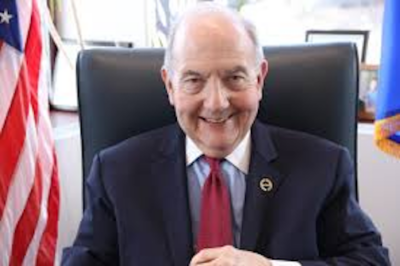When does a movie actually start nowadays?

Whether it’s AMC Marquis 16 in Trumbull or the AMC Majestic 6 in Stamford, there is one thing that apparently is annoying theatergoers enjoying a night out: those incessant and long movie trailers.
While the trailers have always been a fun part of the movie experience, it seems like the number has grown to the point where they could last a total of about 20 minutes. But yet the start time for the movie doesn’t reflect that.
State Senate Pro Temp Martin Looney (D-New Haven) has decided to do something about that. He has co-sponsored a General Law Committee bill that would require movie theater advertisements or listings to include, and separately list, the scheduled start time for the movie trailers and advertisements that a movie, and the start time for the advertised or listed movie. It would also fine theaters $1,000 for not abiding by the law.
The committee, which addresses consumer protection issues and laws, held a public hearing on the bill Feb. 19. Of the eight people who spoke, five spoke out against the bill and two in support.
One of the supporters was the bill’s sponsor Looney, who testified that he has received numerous complaints.
“I have received complaints from constituents who note that they incurred additional baby-sitting costs, or were late for a dinner reservation and had to wait a half hour for a table,” Looney said, “or in the case of a couple who went to see the Bob Dylan biopic, “A Complete Unknown,” were subjected to a string of trailers for violent/horror films in which they had no interest.
“People who wish to see trailers for upcoming movies and information about available refreshments would be free to arrive prior to the movie start time while those who prefer to view only the feature that they have bought tickets to see will be able to do that as well.”
He testified that he has heard that some theaters believe that this legislation would adversely affect their bottom line. But he believes the legislation might actually encourage some residents to see movies in a theater as they would be able to accurately schedule the time needed.
A North Haven resident who is a self-professed movie fan also supports the bill.
“I often avoid going to the cinema because of the unknown and unexpected time commitment,” Timothy Gabriele said. “I sympathize with theater owners who worry about implementing this change. I certainly don’t want to see any additional theaters close in Connecticut, but I think there should also be a way for them to operate in a transparent manner that doesn’t affect their bottom line.”
He suggested the “obnoxious ads and excessive run-times” associated with the theater-going experience are actually pushing audiences towards streaming and other competitors rather than packing people into the seats.
“I’m sure some kind of balance could be met,” he said. “Perhaps theaters can advertise a film’s expected end-time. I also concur with other testimonies that trailers are a long-standard part of the theater-going experience, so maybe the ‘start-time’ begins when the first trailer begins.”
One of the General Law Committee members, Sen. John Kissel (R-Enfield) was not so happy with the bill proposal. He believes it is unnecessary.
“In my 33 years serving this district, not one constituent has ever raised this as a concern,” said Kissel. “Meanwhile, we have movie theaters working hard to provide entertainment for families, and this bill would do nothing but create unnecessary burdens on them.”
He also pointed out that imposing a $1,000 fine for failing to disclose preview times is excessive and out of touch with reality.
“At a time when we should be supporting small businesses, this bill does the opposite. Connecticut’s theaters have already faced enough challenges. We shouldn’t be making it harder for them to operate.”
Bryan T. Cafferelli, commissioner of the Department of Consumer Protection, testified that if the bill becomes law, it would mean more work for his department as well as more workers.
“This bill will require the Department of Consumer Protection (DCP) to inspect and investigate movie theaters, an industry previously unregulated by the DCP,” he said. “As movie times and promotions change daily and there are over 70 movie theaters in the state, there is potential for a number of violations of this law.”
If passed, he recommends pushing back the effective date to Jan. 1, 2026 from Oct. 1, 2025 and providing for a durational program manager to engage the industry in advance of the effective date.